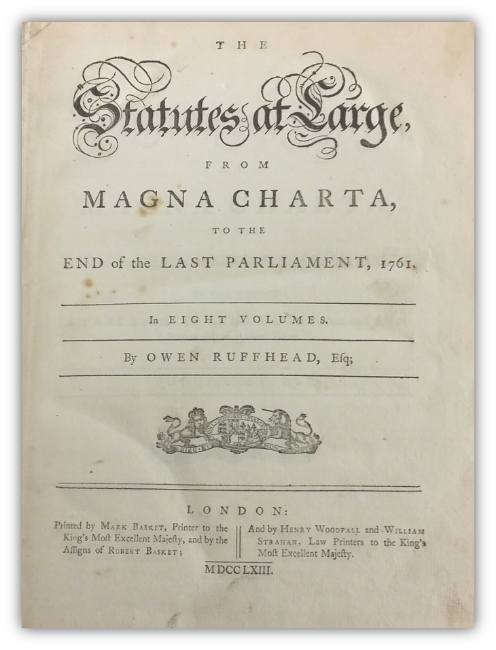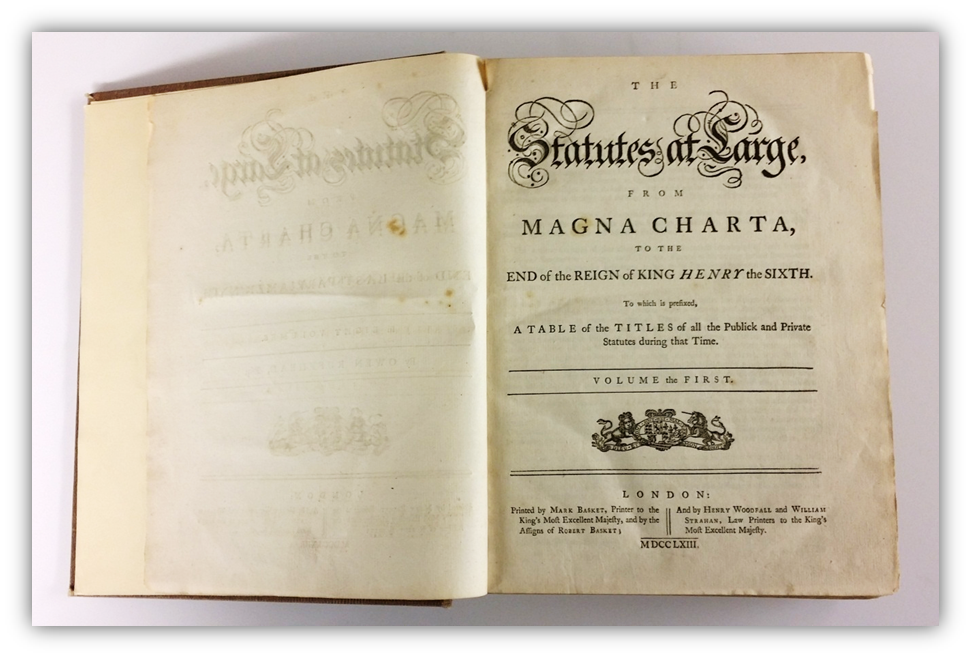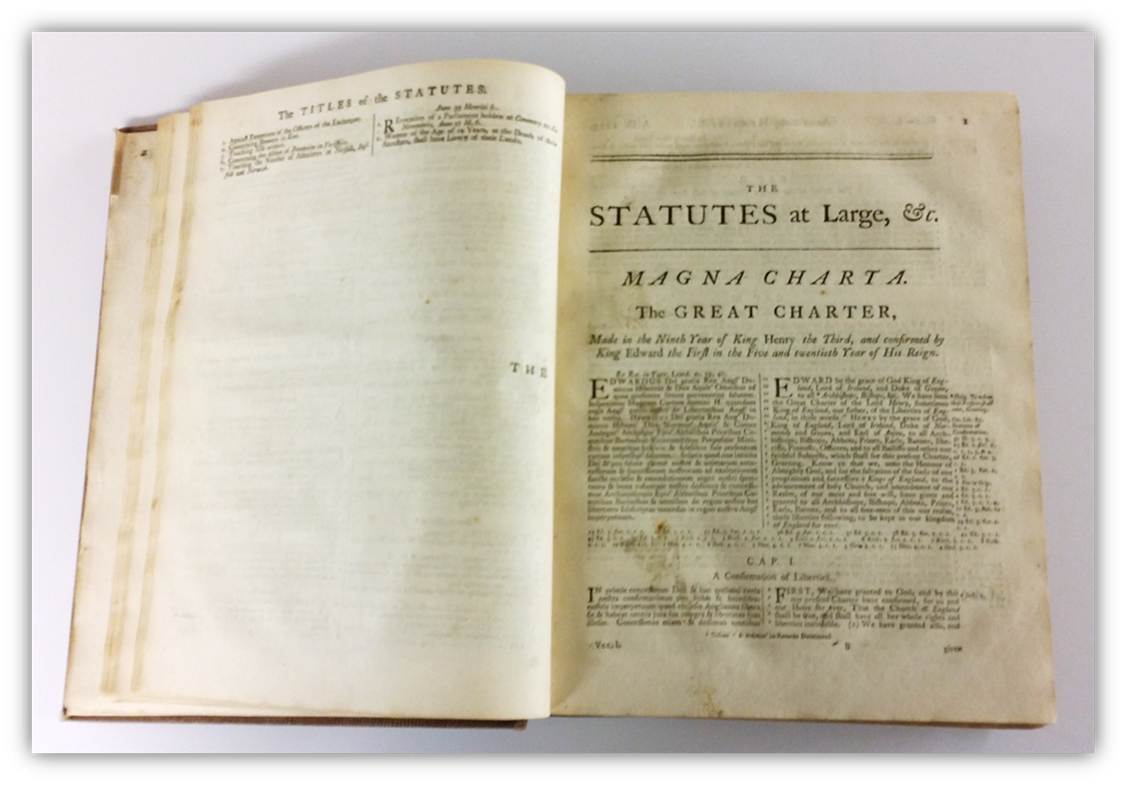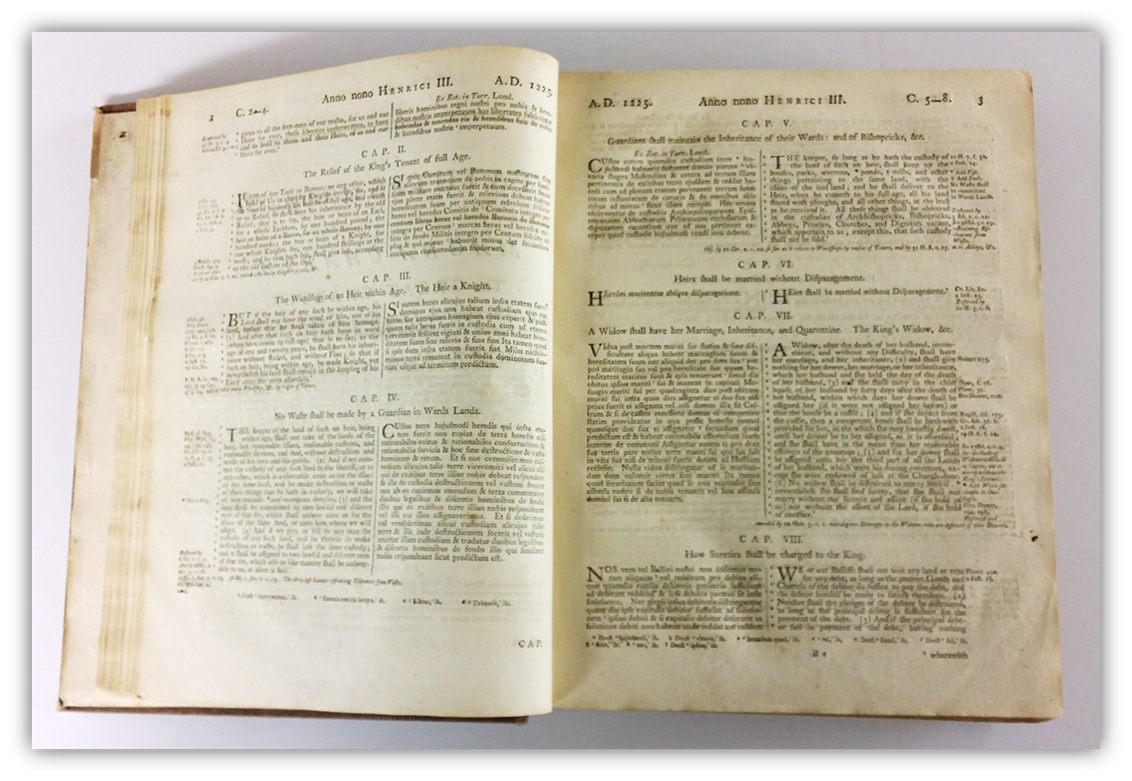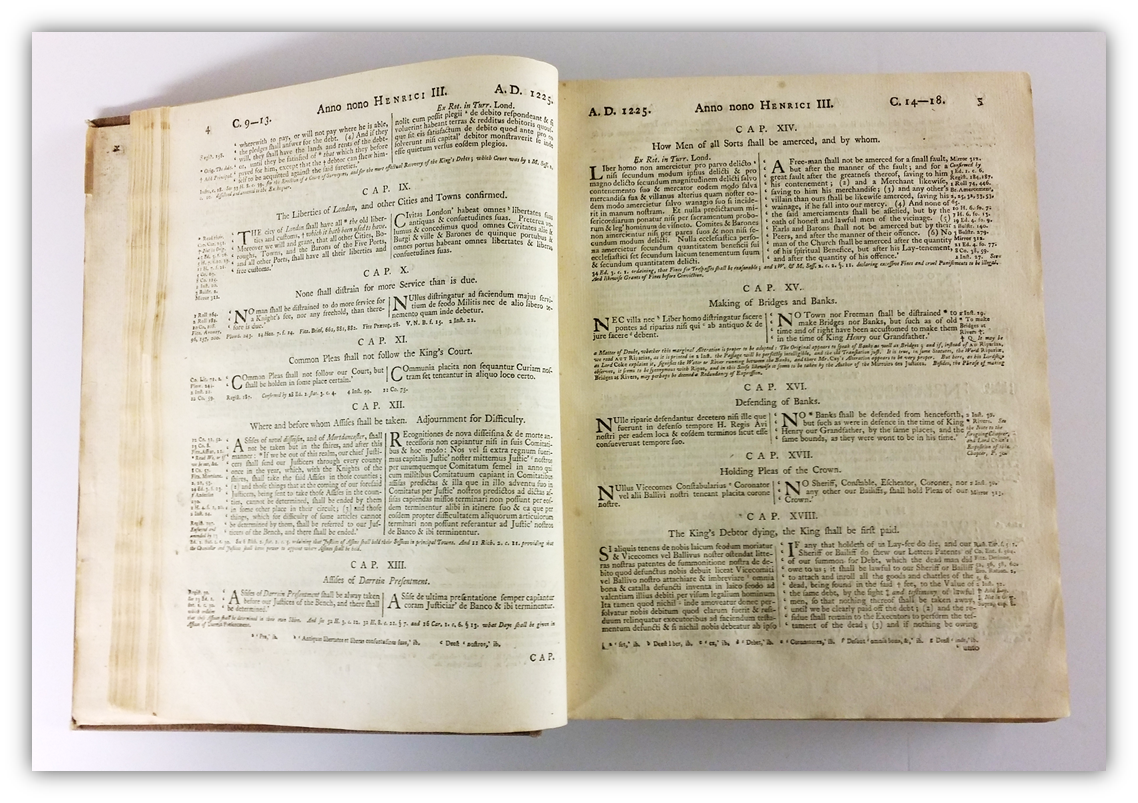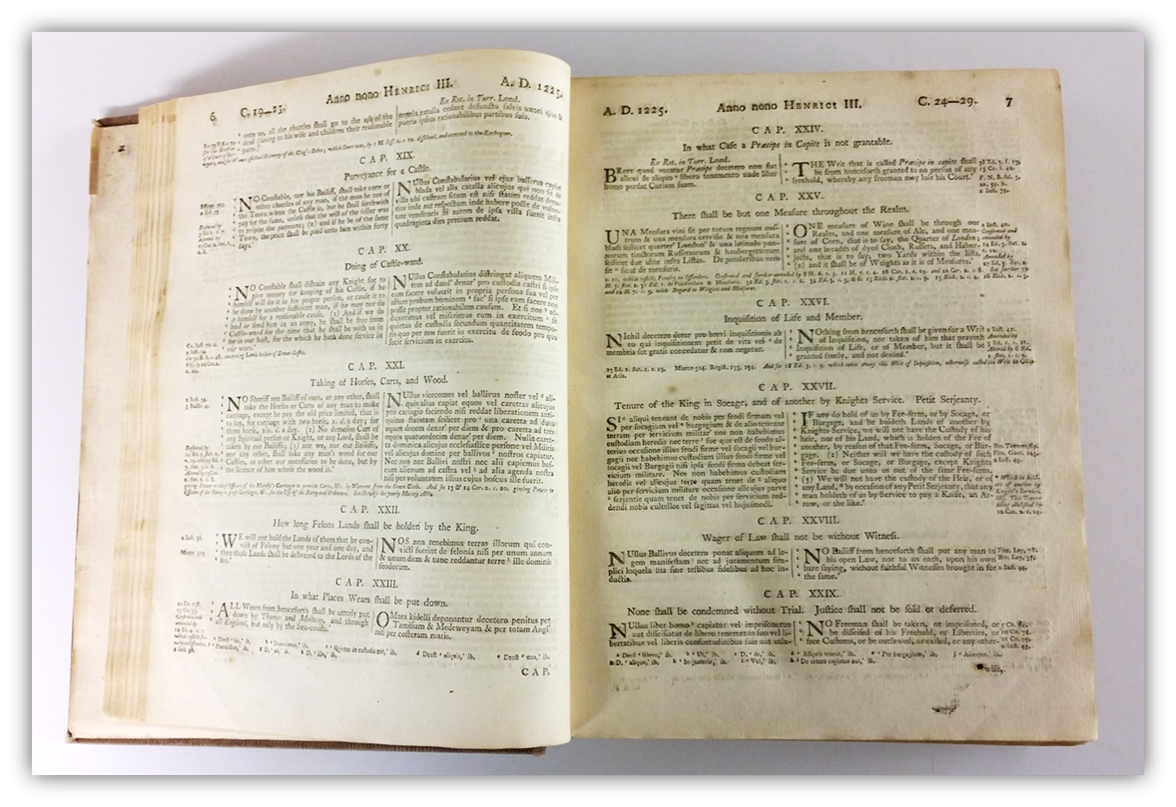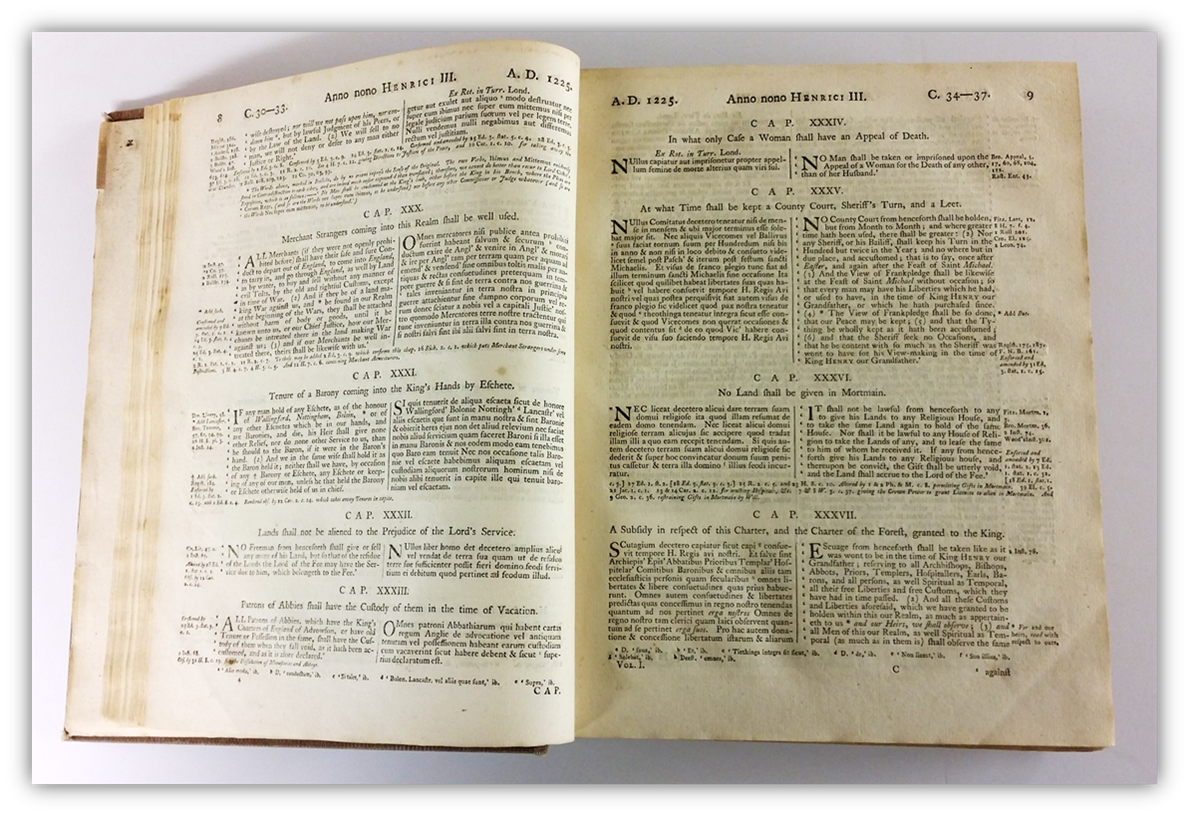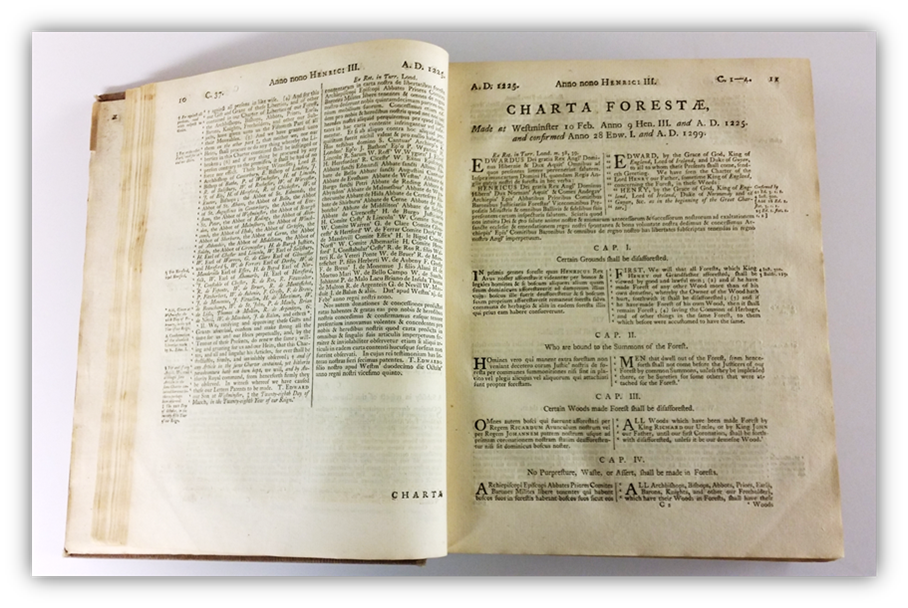Magna Carta Digital Exhibit > 1763 Magna Carta Print
The 1763 Magna Carta at the Harris County Law Library
The 1763 Magna Carta is the first of several English statutes in the book The Statutes at Large from Magna Charta to the End of the Reign of Henry the Sixth, also know as Ruffhead's Statutes at Large after the work's compiler, Owen Ruffhead, Esq.
Although not an original copy from the thirteenth century, the colonial-era work is significant because it was produced when America's founding fathers were developing notions of individual freedoms that would later be included in the Declaration of Independence and the Bill of Rights.
The Founding Fathers' Magna Charta
As the American Revolution erupted in Massachusetts, a copy of Ruffhead's Statutes at Large occupied an important place on the shelf of John Adams' library in Boston. The title page of the future president's copy - which is now owned by the Boston Public Library - bears a familiar signature that also appears on the Declaration of Independence.
Although it cannot be known how often Adams consulted the volume, correspondence sent by fellow founding father, Joseph Hawley, suggests the book was well known among Adams' extensive collection by his contemporaries. On September 23, 1775, Hawley wrote to Adams' wife, Abigail, to request the copy, promising to ensure its speedy and safe return. As Adams served as a delegate to the Second Continental Congress, he likely read the text of the Magna Carta from the 1763 edition of Ruffhead's Statutes at Large and loaned the volume to his fellow founding fathers.
One striking feature of the founding fathers' Magna Carta is the alternative spelling of the title. With the additional "H," "Magna Charta" was the preferred spelling in the eighteenth century. In addition to appearing in Ruffhead's Statutes at Large, the "H" also appeared in the statutory collection of Ruffhead's major competitor, Danby Pickering. Today, however, the generally accepted spelling is without the "H." See, Black's Law Dictionary 1095 (10th ed. 2014).
See it for Yourself
Take a virtual tour of the founding fathers' Magna Carta!
